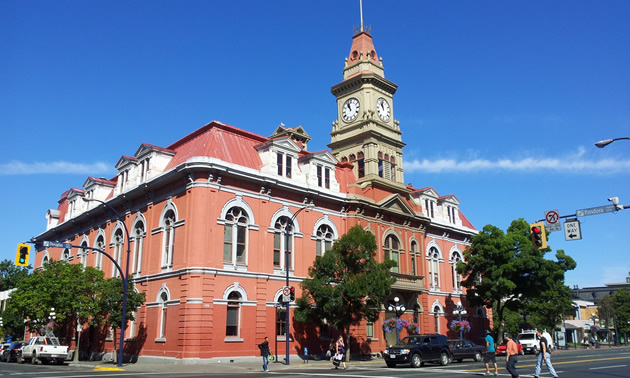Commentary: Don’t expect climate change reparations from Venezuela any time soon

Let’s hope the bean counters at Victoria City Hall understand some cheques just aren’t coming.
Victoria’s mayor, on the other hand, may be losing perspective. She seems to think some of the poorest people in the world owe her city money.
British Columbia’s capital city is sending letters demanding “climate adaptation compensation” from oil producers such as Chevron and Shell, but the letters are also going to government-owned oil companies in China, Iraq and Venezuela.
Entitled “Victoria’s Climate Accountability Letters,” and signed by Mayor Lisa Helps, they’re posted on a webpage with a photo of cyclists pedalling along a sunlit street with transit buses, leafy trees and street lamps.
The webpage says: “(T)he City of Victoria joined other cities in British Columbia to write to fossil fuel producers around the world to ask them to contribute a tiny fraction of their profits to offset the costs our residents our residents [sic] will have to bear.”
The letter says global warming could eventually threaten some edible plant bulbs in a Victoria green space and that Venezuela should send Victoria money to help save the meadow that’s ringed with million-dollar homes.
Victoria City Hall and the people of Venezuela both have an interest in roots. While those in Victoria enjoy the view of the urban flora from their verandas, the people of Venezuela are foraging for roots in forests because they are starving. Venezuela is in a full-blown crisis. Hyperinflation has hit unimaginable levels and a ban on foreign currency has meant that food, medicine and everything else most Venezuelans need to survive, have become scarce. Some Venezuelans have resorted to butchering their pets for meat and selling breast milk.
If Venezuela manages to get its oil sector operating again, maybe Victoria’s mayor could let the ravaged country restock grocery shelves before demanding imaginary environmental reparations.
It’s an absurd example of a reality many of Canada’s disconnected elites refuse to recognize: Canada’s posturing doesn’t resonate on the world stage. B.C. Premier John Horgan and Prime Minister Justin Trudeau insist that taxpayers pay ever-increasing carbon taxes to reduce emissions, while Canada produces just 1.6% of global emissions. The prime minister acknowledges an obvious fact:
“Even if Canada stopped everything tomorrow, and the other countries didn’t have any solutions, it wouldn’t make a big difference,” Trudeau said on a Quebec talk show last October.
What these politicians should notice is that everyday people can only be abused for so long before they put down their tools, step away from their tills, climb out of their trucks and fight back.
In France, ordinary people are donning yellow vests and battling in the streets against their government over hiked fuel taxes. France’s President Emmanuel Macron pushed his people a tax too far after getting fawning approvals from his friends at the Paris accord soiree and he’s now bowing to the masses and delaying planned carbon tax increases.
Closer to home, voters in Washington State have overwhelmingly rejected a carbon tax in not one, but two referendums.
Down under, Australia imposed a carbon tax in 2012. After power bills soared and multiple prime ministers lost their jobs, Australia abandoned its failed carbon tax experiment in 2014.
In Canada, people are pushing back against high fuel taxes and attacks on our natural resource industries across Western Canada and in a reawakened Ontario. They’re telling Trudeau to cancel his forced carbon tax and are fighting him in court. Truckers have been rolling in convoys, sometimes a thousand rigs long, to demand the completion of promised pipelines.
Politicians need to listen.
At very least, they could recognize that it’s unseemly to demand climate change reparations money from Venezuelans while they literally starve to death.
Kris Sims, British Columbia Director of the Canadian Taxpayers Association. This column was originally published in the Sun Media newspaper chain.